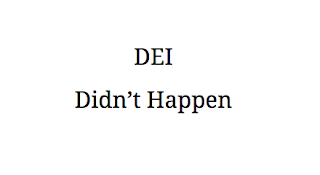Assorted Notes and Advocacy Stories
Adjusting Harmful Narratives
Response of "this is all we can feasibly do". Often means a tokenized support of "the most I can posture without inconveniencing myself". Plus context of empowerments and disempowerment.
Can also investigate the misuse of the "healthy boundaries" concept to also justify non-action in response to injustice, again because is self-inconvenient.
Campaigns Against Sexual Harassment
I just knew that he needed to be held accountable one day and that it would happen one day, but it took years for that to happen. ... It's just sad that it took years and years of us forcing people's hand to remove him from his position of power.
We talked with our legal team weekly. I keep saying "our" because I actually feel like for two years, we talked weekly, so I was part of it. Sinead and Mana both sent emails that we all looked at, multiple drafts of these emails asking them to look into the sexual harassment and assault from Paul Riley from years back. Lisa Baird's [commissioner of the National Woman's Soccer League] email back: "We're doing what we can. We'll look into it. We'll get back to you." Nothing. ... Weeks went by, nothing happened.
So when this article was finally released and there's a sigh of relief on our side and just utter shock from the rest of the soccer community -- we had already known everything. We tried to give the league a chance and time again to do the right thing. I wanted so deeply for Lisa Baird to just stand up and say, "I'm sorry. I didn't do enough. I didn't look into enough. I trusted our general counsel, Lisa Levine, too much. We were too understaffed. We didn't have enough people in the room to really make calculated decisions," but she didn't. She said she was shocked and disgusted, and that was surprising because that was a lie.
Upskirting: 7 lessons activist Gina Martin learned during her campaign to make it a criminal offense
People would often put me on the front of newspapers because I was a white woman who wanted to change the law, but I wonder if the narrative would’ve been different if I wasn’t who I was?
“I had to fit campaigning around my full-time job which has seen me working on it from 5am before work and sitting up until 4am"
Racial Justice Campaigns
The Real Story of Baseball's Integration That You Won't See in 42
The new film ignores the broad-based movement that helped make Jackie Robinson's arrival in baseball possible, as well as the first black major-leaguer's own activism. ... We may prefer our heroes to be rugged individualists, but the reality doesn't conform to the myth embedded in Hollywood's version of the Robinson story. ... Robinson recognized that the dismantling of baseball's color line was a triumph of both a man and a movement
Starting in the 1930s, reporters for African-American papers took the lead in pushing baseball's establishment to hire black players. Progressive unions and civil rights groups picketed outside [stadiums]. They gathered more than a million signatures on petitions, demanding that baseball tear down the color barrier erected by team owners and Commissioner Kennesaw Mountain Landis. In July 1940, the Trade Union Athletic Association held an "End Jim Crow in Baseball" demonstration at the New York World's Fair. In December 1943, Paul Robeson, the prominent black actor, singer, and activist, addressed baseball's owners at their annual winter meeting in New York, urging them to integrate their teams. Under orders from Landis, they ignored Robeson and didn't ask him a single question.
Liberals stop lying about the Civil Rights Movement Challenge (Difficulty Impossible)
This liberal myth that the Civil Rights movement was just a lot of polite Black people in their church clothes walking up and down the street thanking the police for not bopping them on the head while they protest. And then all of a sudden John F. Kennedy signed the civil rights bill.
Most of our conclusions about what we think about the world have been manufactured with great amount of effort and resource and organization by those in power. ... There's been a lot of effort, for a long time, a lot of resource, a lot of study into how to do it, to create a version in our minds of the world, and of a history, that is not necessarily true. Du Bois once called it the propaganda of history.
One thing you brought to my attention is the absence of violence against colonial imperial power in our media. Even going into depictions of Judaism and the Holocaust. My understanding of the Holocaust is that the Germans just came and rounded up the Jews, and you pointed out in one of your talks about how there was significant violence against Nazis by Jewish people and you will never see that in our media, aside from Inglorious Bastards (which is pure fiction). That seems like it would be an easy thing to sell to the media but it doesn't happen because we have to maintain this veneer of civility and peace under oppression.


